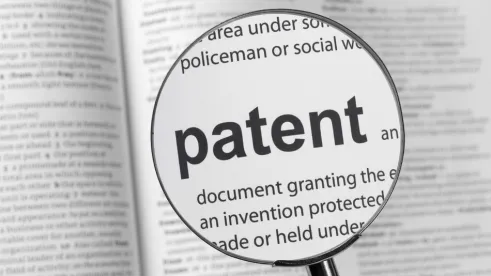The cases show that—even given a recent US Supreme Court interpretation of the statute—uncertainty still exists about complying with the “patent dance" information exchange requirements under the Biologics Price Competition and Innovation Act.
On September 14, the US Food and Drug Administration (FDA) approved Amgen Inc. and Allergan plc’s MVASI® (bevacizumab-awwb)—a biosimilar to Genentech Inc.’s Avastin®—for use in the treatment of five types of cancer. MVASI® is the first FDA-approved anticancer biosimilar and also the first bevacizumab biosimilar.
Shortly after its approval, both Genentech and Amgen filed lawsuits—on the same day—related to MVASI®’s alleged infringement of certain Genentech patents.
Amgen’s Lawsuit
On October 6, Amgen filed a declaratory judgment lawsuit in the US District Court for the Central District of California seeking judgment that MVASI® does not infringe 27 Genentech patents and that the Genentech patents are invalid. Interestingly, in its complaint, Amgen contended that it complied with the information exchange requirements (the “Patent Dance”) under the Biologics Price Competition and Innovation Act (BPCIA). In particular, Amgen stated that it invited Genentech to make requests for targeted information, but Genentech did not do so.
Amgen also contended that Genentech failed to comply with the BPCIA Patent Dance by failing to provide the required factual and legal basis for its infringement contentions. A dispute then arose between Amgen and Genentech regarding which patents should be litigated. Despite the parties’ efforts to negotiate, discussions ended on September 29, 2017 without an agreement, leading to Amgen’s lawsuit.
Genentech’s Lawsuit
On the same day that Amgen filed its suit, Genentech filed a patent infringement lawsuit in the US District Court for the District of Delaware alleging that Amgen infringed 24 of its patents. In its complaint, Genentech set forth a far different view of the parties’ Patent Dance exchanges. Indeed, Genentech alleged that Amgen refused to provide it with any required information other than its abbreviated Biologics License Application. Additionally, Genentech claimed that it did provide Amgen with a list of other information relevant to its patent assessment, but that Amgen ignored its request.
Genentech also accused Amgen of refusing to negotiate regarding the scope of litigation and intentionally taking steps to delay those negotiations to prevent Genentech from filing suit. Further, Amgen purportedly sent Genentech a letter on October 6, 2017 asking about availability to conduct further negotiations—without mentioning that it was going to serve Genentech with its notice of commercial marketing the same day or that it had filed a lawsuit against Genentech for declaratory judgment hours earlier. Consequently, Genentech alleged that Amgen’s notice of commercial marketing was in derogation of a promise made pursuant to the BPCIA.
Conclusion
Together, these cases show that—despite the Supreme Court’s recent interpretation of the BPCIA—uncertainty still exists as to what is required to comply with the statute and what impact alleged noncompliance has on parties’ ability to pursue legal action against one another.




 />i
/>i
